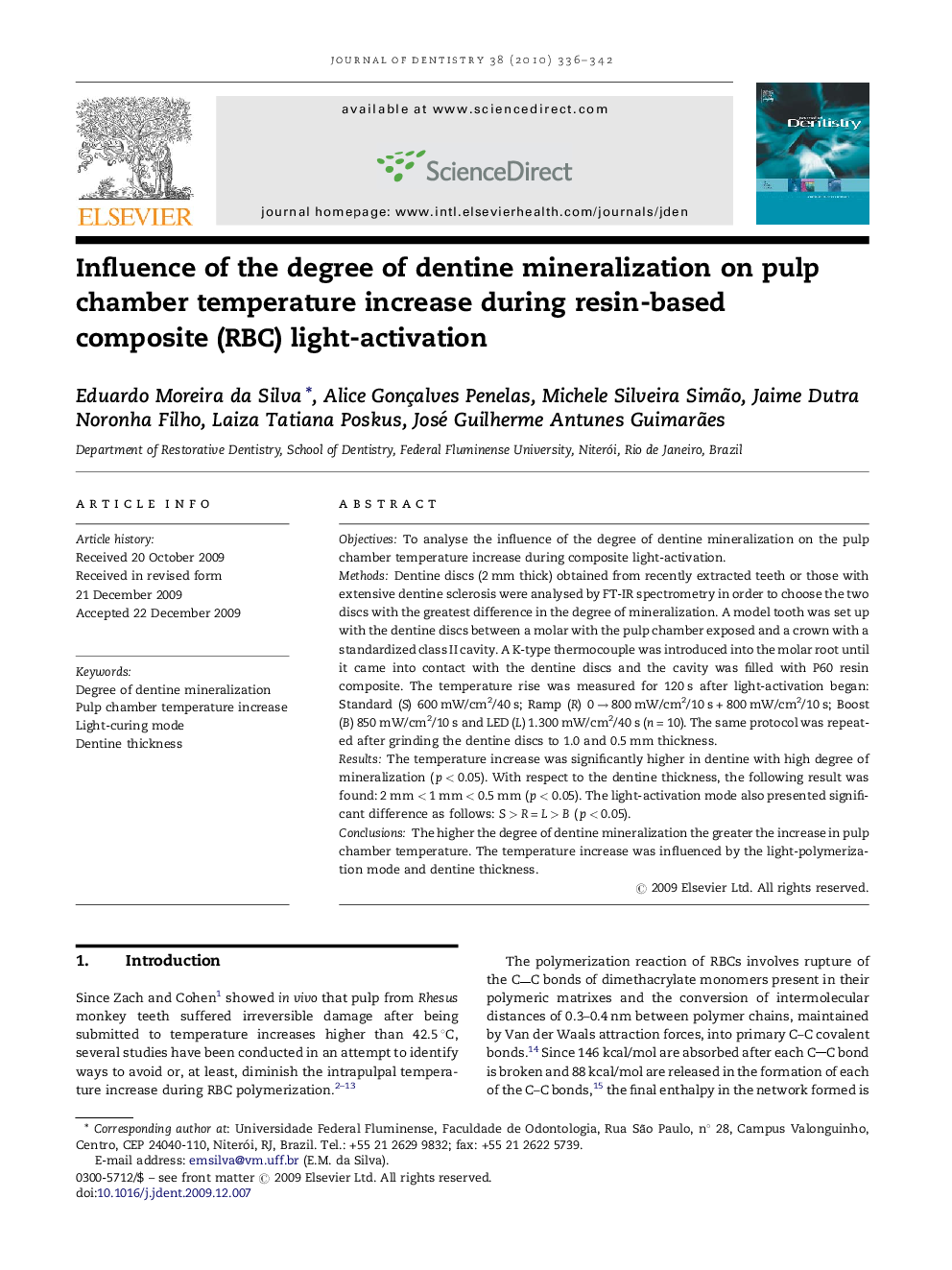| کد مقاله | کد نشریه | سال انتشار | مقاله انگلیسی | نسخه تمام متن |
|---|---|---|---|---|
| 3146121 | 1197149 | 2010 | 7 صفحه PDF | دانلود رایگان |

ObjectivesTo analyse the influence of the degree of dentine mineralization on the pulp chamber temperature increase during composite light-activation.MethodsDentine discs (2 mm thick) obtained from recently extracted teeth or those with extensive dentine sclerosis were analysed by FT-IR spectrometry in order to choose the two discs with the greatest difference in the degree of mineralization. A model tooth was set up with the dentine discs between a molar with the pulp chamber exposed and a crown with a standardized class II cavity. A K-type thermocouple was introduced into the molar root until it came into contact with the dentine discs and the cavity was filled with P60 resin composite. The temperature rise was measured for 120 s after light-activation began: Standard (S) 600 mW/cm2/40 s; Ramp (R) 0 → 800 mW/cm2/10 s + 800 mW/cm2/10 s; Boost (B) 850 mW/cm2/10 s and LED (L) 1.300 mW/cm2/40 s (n = 10). The same protocol was repeated after grinding the dentine discs to 1.0 and 0.5 mm thickness.ResultsThe temperature increase was significantly higher in dentine with high degree of mineralization (p < 0.05). With respect to the dentine thickness, the following result was found: 2 mm < 1 mm < 0.5 mm (p < 0.05). The light-activation mode also presented significant difference as follows: S > R = L > B (p < 0.05).ConclusionsThe higher the degree of dentine mineralization the greater the increase in pulp chamber temperature. The temperature increase was influenced by the light-polymerization mode and dentine thickness.
Journal: Journal of Dentistry - Volume 38, Issue 4, April 2010, Pages 336–342